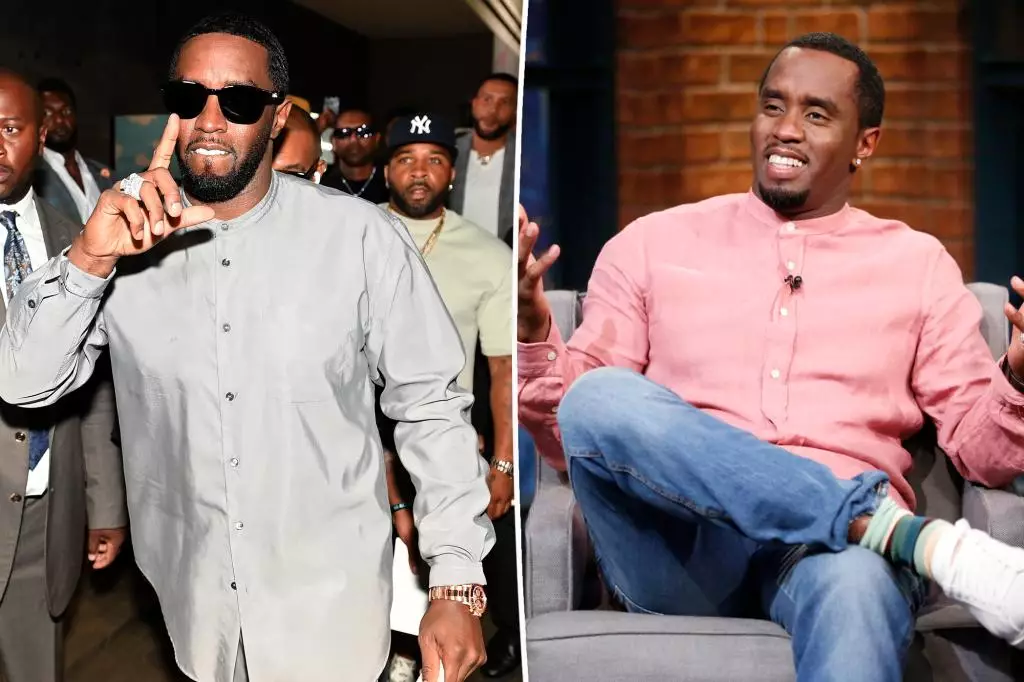In recent weeks, Sean “Diddy” Combs has found himself at the center of a serious legal storm, facing accusations that are shaking the foundation of his public persona. Prosecutors have laid out a complex case against the music mogul, alleging a range of misconduct during his time in custody. These claims come at a time when Combs’s influence in the entertainment industry is being closely scrutinized, raising questions not only about his legal status but also about the broader implications of celebrity culture and accountability.
At the heart of the allegations is the claim that Combs has made concerted efforts to evade prison regulations while detained at the Metropolitan Detention Center in Brooklyn, New York. Prosecutors contend that the 55-year-old has engaged in communication that violates established protocols, including the use of telephone accounts belonging to other inmates. This alleged misuse of prison resources seemingly aims to keep his conversations from being monitored by investigators. It raises urgent concerns about the integrity of the justice system and whether the wealthy, powerful, or famous can find ways to circumvent accountability.
By utilizing the accounts of at least eight other incarcerated individuals, prosecutors allege that Combs may have been financially incentivizing these inmates, leveraging payment processing apps and deposits to facilitate his communications. Such actions not only violate the terms of his confinement but suggest a willingness to manipulate his situation for personal gain, thereby circumventing the legal process.
Compounding the situation, there are allegations that Combs instructed those on the other end of the line—whether family or legal representatives—to engage in three-way calls. This practice is specifically prohibited by the Bureau of Prisons, indicating a deliberate effort to hide the identities of those he speaks with from authorities. If proven true, such tactics may further complicate his legal standing, as they exemplify a broader disregard for the constraints of his detention. The emphasis on concealment raises troubling questions about his respect for the legal process and his view of personal accountability.
The prosecution has also highlighted attempts by Combs to influence public perception in the run-up to his trial. They pointed to a highly orchestrated celebration of his 55th birthday, where his children shared curated videos on social media platforms that display familial support. This is not just a celebration; according to court documents, it is a strategic move designed to sway public opinion and potentially impact the jury pool. The intricate balance between public relations and legal trials reflects an unsettling intersection where celebrity status can manipulate narrative and perception.
Such tactics are not uncommon in high-profile cases, where defendants may leverage their influence or resources to shape the context surrounding their legal troubles. In this venture, Combs’s alleged actions depict a concerted effort to disrupt the fair trial rights afforded to defendants within the justice system.
Perhaps most alarming are claims suggesting that Combs aims to intimidate or blackmail potential witnesses and victims. According to prosecutors, there is an undercurrent implying that Combs is seeking to silence those who may provide testimonies against him or potentially persuade them to testify in his favor. The implications of such actions are grave; they threaten the very foundation of the judicial process, which relies on unbiased testimony to achieve equitable outcomes.
By presenting a case that weaves together themes of influence, manipulation, and disregard for legal norms, the prosecution paints a picture of an individual who believes he is above the law. Combs’s charges of racketeering conspiracy, sex trafficking, and more are compounded by the nature of these allegations, which suggest a calculated approach to managing both his legal and personal narrative.
A Critical Turning Point
As the legal proceedings continue, set to commence in May 2025, the scrutiny placed upon Combs cannot be overstated. These allegations, coupled with the complexities of his celebrity narrative, serve as a critical turning point—not only for Combs himself but also for the landscape of accountability within the entertainment industry. If proven true, his behavior exemplifies the dangers of power and influence when wielded irresponsibly within the bounds of legality.
Sean “Diddy” Combs’s ongoing legal troubles raise fundamental questions about accountability, ethics, and the critical need for a legal framework that applies equally to all individuals, regardless of their status. As the trial approaches, society watches closely, eager to understand whether celebrity privilege can truly circumvent the consequences of one’s actions or if a reckoning is indeed on the horizon.

Leave a Reply